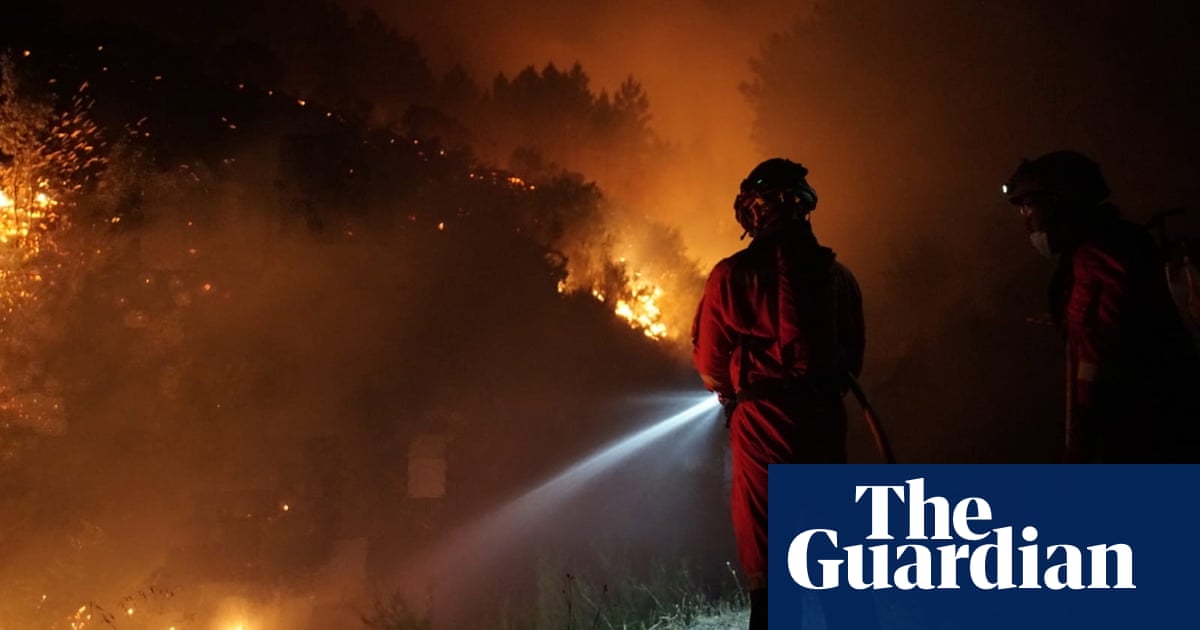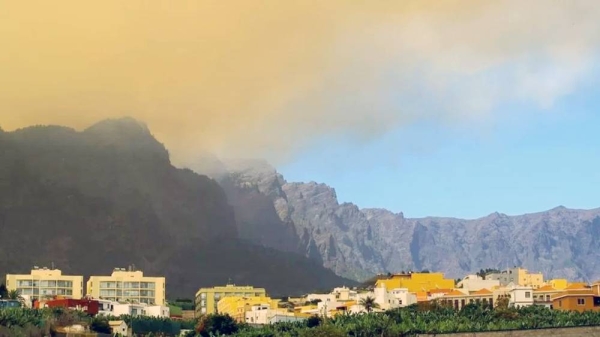
A coal-fired power station in south-west Turkey and nearby town on the Aegean Sea were evacuated late on Wednesday as a deadly wildfire reached inside the plant.
Firefighters and police fled the 35-year-old Kemerköy plant in the hillside Aegean province of Muğla, and sirens could be heard wailing.
The defence ministry said it was evacuating villagers by sea as bright balls of orange flame tore through the hills encircling the plant.
The regional municipality said “all explosive chemicals” and other hazardous material had been removed from the strategic site.
“But there’s a risk that the fire could spread to the thousands of tonnes of coal inside,” the regional mayor, Osman Gürün, told reporters.
Local officials said hydrogen tanks used to cool the station had been emptied and filled with water as a precaution.
Turkish television images showed flames lapping power lines and running along the main road leading into town.
More than 180 wildfires have scorched huge swathes of forest and killed eight people since breaking out along almost the entire perimeter of Turkey’s Aegean and Mediterranean coasts.
The European Union’s satellite monitoring service said their “radiative power” – a measure of the fires’ intensity – “has reached unprecedented values in the entire dataset, which goes back to 2003”.
The fires’ strength and scale have exposed Turkish President Recep Tayyip Erdoğan to days of criticism for what some observers say has been his sluggish response to the crisis.
Erdoğan had just begun a live television interview about the fires as news broke about the evacuation of the plant.
He acknowledged that the efforts of firefighters to save the station were failing in the face of “tremendous wind” fanning the flames.
An AFP team confirmed that strong gusts of wind were spreading the flames, meaning flashpoints were reappearing in places where the fires had been put out only hours earlier.
Erdoğan lashed out at Turkey’s opposition leaders for trying to score political points by questioning his governments’ readiness and response.
“When fires break out in America or Russia, [the opposition] stands by the government,” Erdogan fumed.
“Like elsewhere in the world, there has been a big increase in the forest fires in our country. There should be no room for politics here.”
The Turkish government appears to have been rattled by the scale and ferocity of the flames.
Its media watchdog on Tuesday warned broadcasters that they might be fined if they continue showing live footage of the blazes or air images of screaming people running for their lives.
Most rolling news channels dropped their coverage of the unfolding disaster until the fire reached the power plant.
Erdoğan himself has been subjected to days of ridicule on social media after he tossed bags of tea to crowds of people while touring one of the affected regions under heavy police escort.
The opposition has also accused the powerful Turkish leader of being too slow to accept offers of foreign assistance – including from regional rival Greece – and for having failed to properly maintain firefighting planes.
Erdoğan’s office blamed the very first blazes near Antalya on arsonists, which pro-government media linked to banned Kurdish militants waging a decades-long insurgency against the state.
But more and more public officials now link them to an extreme heatwave that has dried up reservoirs and created tinderbox conditions across much of Turkey’s south.
Experts have warned that climate change in countries such as Turkey increases the frequency and intensity of wildfires. The government of neighbouring Greece has directly linked devastating fires there, which covered the capital Athens in smoke on Wednesday, to global heating.
Turkey’s agriculture and forestry minister, Bekir Pakdemirli, said temperatures in the Aegean city of Marmaris reached an all-time record of 45.5C (114F) this week.
“We are fighting a very serious war,” the minister told reporters. “I urge everyone to be patient.”











